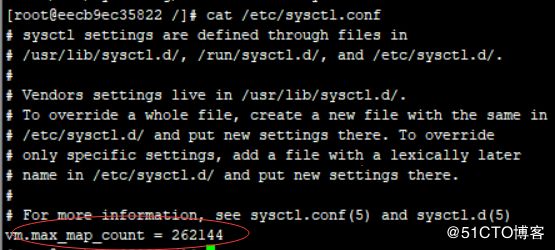启动 centos
docker run --privileged -it -d --name centos01 arm64v8/centos:7 /usr/sbin/init
![]()
在centos01容器装 yum install -y java-1.8.0-openjdk unzip net-tools
配置环境变量
把运行的容器制作镜像
docker commit eecb9ec35822 swr.cn-east-3.myhuaweicloud.com/reg/centos7:jdk8
push 到容器仓库
docker push swr.cn-east-3.myhuaweicloud.com/reg/centos7:jdk8
制作elasticsearch 基础镜像
Dockerfile 配置文件
#FROM arm64v8/centos:7
FROM swr.cn-east-3.myhuaweicloud.com/reg/centos7:jdk8
MAINTAINER zhouhongfe
#RUN yum install -y java-1.8.0-openjdk
ENV ES_ADDR="network.host: 0.0.0.0"
ENV clusterName="cluster.name: es"
#RUN cd /usr/local && wget https://artifacts.elastic.co/downloads/elasticsearch/elasticsearch-5.6.3.tar.gz
COPY ./elasticsearch-5.6.3.tar.gz /usr/local
RUN cd /usr/local && tar zxvf elasticsearch-5.6.3.tar.gz && mv elasticsearch-5.6.3 elasticsearch && rm -f elasticsearch-5.6.3.tar.gz
RUN mkdir -p /data/elasticsearch/data && mkdir /data/elasticsearch/logs
ADD ./elasticsearch.yml /usr/local/elasticsearch/config/elasticsearch.yml
RUN echo "${ES_ADDR}">>/usr/local/elasticsearch/config/elasticsearch.yml
RUN echo "${clusterName}">>/usr/local/elasticsearch/config/elasticsearch.yml
RUN useradd elasticsearch
RUN chown -R elasticsearch:elasticsearch /usr/local/elasticsearch/ && chown -R elasticsearch:elasticsearch /data/elasticsearch
USER elasticsearch
WORKDIR /usr/local/elasticsearch
VOLUME ["/data/elasticsearch/data"]
VOLUME ["/data/elasticsearch/logs"]
CMD ["/usr/local/elasticsearch/bin/elasticsearch"]
EXPOSE 9200
EXPOSE 9300
build镜像文件
docker build -t swr.cn-east-3.myhuaweicloud.com/reg/elasticsearch-5.6.3:arm .
启动脚本 es.sh
docker rm -f elasticsearch
docker run -d --name elasticsearch --restart always -p 9200:9200 -p 9300:9300 --privileged -v /hwdata/elasticsearch/data:/data/elasticsearch/data -v /hwdata/elasticsearch/logs:/data/elasticsearch/logs swr.cn-east-3.myhuaweicloud.com/reg/elasticsearch-5.6.3:arm
在压缩包提取 elasticsearch.yml 修改如下
[root@PMS-HW-KP-008 es]# cat elasticsearch.yml
# ======================== Elasticsearch Configuration =========================
#
# NOTE: Elasticsearch comes with reasonable defaults for most settings.
# Before you set out to tweak and tune the configuration, make sure you
# understand what are you trying to accomplish and the consequences.
#
# The primary way of configuring a node is via this file. This template lists
# the most important settings you may want to configure for a production cluster.
#
# Please consult the documentation for further information on configuration options:
# https://www.elastic.co/guide/en/elasticsearch/reference/index.html
#
# ---------------------------------- Cluster -----------------------------------
#
# Use a descriptive name for your cluster:
#
#cluster.name: es
#
# ------------------------------------ Node ------------------------------------
#
# Use a descriptive name for the node:
#
node.name: node-1
#
# Add custom attributes to the node:
#
#node.attr.rack: r1
#
# ----------------------------------- Paths ------------------------------------
#
# Path to directory where to store the data (separate multiple locations by comma):
#
path.data: /data/elasticsearch/data
#
# Path to log files:
#
path.logs: /data/elasticsearch/logs
#
# ----------------------------------- Memory -----------------------------------
#
# Lock the memory on startup:
#
bootstrap.memory_lock: false
bootstrap.system_call_filter: false
#
# Make sure that the heap size is set to about half the memory available
# on the system and that the owner of the process is allowed to use this
# limit.
#
# Elasticsearch performs poorly when the system is swapping the memory.
#
# ---------------------------------- Network -----------------------------------
#
# Set the bind address to a specific IP (IPv4 or IPv6):
#
#network.host: 0.0.0.0
#
# Set a custom port for HTTP:
#
http.port: 9200
http.cors.enabled: true
http.cors.allow-origin: "*"
#
# For more information, consult the network module documentation.
#
# --------------------------------- Discovery ----------------------------------
#
# Pass an initial list of hosts to perform discovery when new node is started:
# The default list of hosts is ["127.0.0.1", "[::1]"]
#
#discovery.zen.ping.unicast.hosts: ["host1", "host2"]
#
# Prevent the "split brain" by configuring the majority of nodes (total number of master-eligible nodes / 2 + 1):
#
#discovery.zen.minimum_master_nodes: 3
#
# For more information, consult the zen discovery module documentation.
#
# ---------------------------------- Gateway -----------------------------------
#
# Block initial recovery after a full cluster restart until N nodes are started:
#
#gateway.recover_after_nodes: 3
#
# For more information, consult the gateway module documentation.
#
# ---------------------------------- Various -----------------------------------
#
# Require explicit names when deleting indices:
#
#action.destructive_requires_name: true



